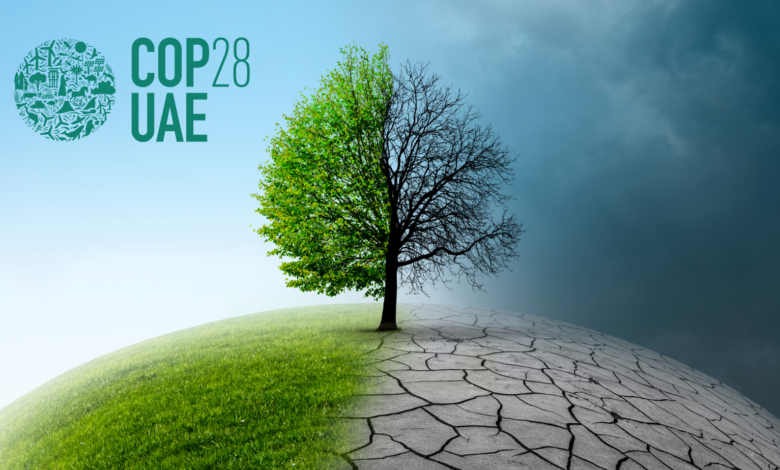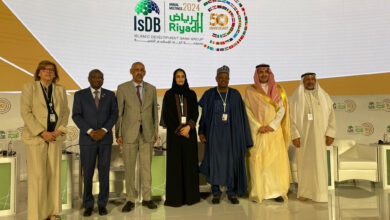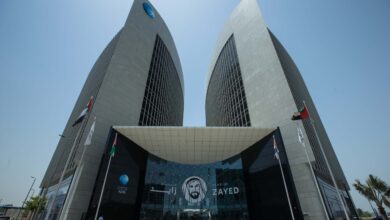COP28 Verdict: A Glimmer of Hope in a Climate of Uncertainty, But the Path Ahead Remains Steep

The dust has settled on COP28, the 28th Conference of the Parties to the United Nations Framework Convention on Climate Change, leaving behind a complex tapestry of progress, missed opportunities, and lingering questions. Held in the opulent desert metropolis of Dubai, the 2-week summit saw more than 97,000 delegates from 198 countries including the European Union convene, their collective gaze fixed on the daunting task of charting a course toward a sustainable future with a spotlight on climate financing and reducing fossil fuel dependence.
What did COP28 achieve? Did it deliver the decisive blows needed to tackle the climate crisis? The answer, as with most things in life, is not a simple binary.
To begin, COP28 in the UAE holds momentous significance as it stands as the inaugural climate summit hosted in the Middle East. This landmark event not only signified a new chapter in the global dialogue on climate change but also highlighted the unique perspective and unwavering commitment to sustainability demonstrated by the UAE.
The discussions at COP28 were enriched by the distinctive flavor brought by the UAE, showcasing the region’s dedication to playing a pivotal role in global climate action. As the Middle East’s first host of such a critical summit, the UAE’s position emphasized the importance of regional leadership and cooperation in addressing the pressing challenges posed by climate change.
This historic occasion underscored the UAE’s proactive stance in contributing to international efforts to combat climate change and reinforces its aspiration to emerge as a global leader in sustainable practices and environmental stewardship.
A Watershed moment with Glimmering Hope and Lingering Doubts
Despite being the scheduled closing day, the COP28 climate talks in Dubai dragged into overtime on Tuesday, with intense diplomatic efforts underway to bridge deep rifts between countries regarding fossil fuel language in the summit’s final text.
On Wednesday, COP28 President Sultan al-Jaber hailed a climate deal approved by almost 200 countries on Wednesday as a “historic package” of measures that offered a “robust plan” to keep the target of 1.5C within reach.
“We have delivered a paradigm shift that has the potential to redefine our economies,” he said during the closing session of the COP28 summit, shortly after the deal was approved.
He also added a note of caution for nations: “An agreement is only as good as its implementation. We are what we do, not what we say.”
A Landmark Agreement with Teeth?
The most significant outcome of COP28 was undoubtedly the “UAE Consensus.” This landmark agreement, for the first time, explicitly calls for a global “transition away from fossil fuels,” a critical step towards achieving net-zero emissions. It also sets ambitious targets for tripling renewable energy capacity and doubling energy efficiency by 2030.
These goals represent a watershed moment, signaling a potential turning point in the fight against climate change. However, the agreement’s true impact hinges on its implementation. Critics point out the lack of concrete timelines and enforcement mechanisms for the fossil fuel phase-out, raising concerns about its effectiveness.
Financial Flow: A Trickle or a Torrent?
Another contentious issue was climate finance. Developed nations reiterated their commitment to providing $100 billion annually to support developing countries in their climate transition. However, concerns remain about the accessibility and transparency of these funds, with many arguing that the current trickle needs to become a torrent for meaningful progress.
Loss and Damage: A Mounting Debt Acknowledged
One of the most vulnerable groups to climate change are those living in developing countries, often bearing the brunt of its impacts despite contributing the least to the problem. COP28 recognized this by establishing a new fund to address “loss and damage,” the irreversible harm caused by climate change. While this represents a significant step forward, the fund’s size and scope remain inadequate to fully address the immense needs of affected communities.
Voices on the Margins: A Call for Inclusion
Despite its shortcomings, COP28 also saw a stronger presence of marginalized voices, including indigenous communities and youth activists. These groups, often at the forefront of the climate crisis, demanded greater inclusion in decision-making processes and highlighted the need for equitable solutions that address the social and economic dimensions of climate change.
The road ahead won’t be easy. The agreement’s success hinges on robust implementation plans and concrete action from all nations. But with the embers of COP28 glowing brightly, a sense of cautious optimism ripples across the globe. We stand at a pivotal moment, where the collective will of humanity has the power to bend the arc of history towards a sustainable future.
COP28’s impact on the Middle East is profound, showcasing the region’s commitment to sustainability. The summit acts as a symbol of hope and collaboration, positioning the Middle East as a leader in global climate action. With transformative policies, the outcomes of COP28 can shape environmental practices, renewable energy adoption, and resilience-building measures in the region.
The Middle East, traditionally linked with energy, is now charting a course for sustainable development, contributing significantly to global climate efforts. While COP28 served as a beacon for a greener and more resilient Middle East, let it be not just a summit, but a springboard, a launchpad for a brighter, cleaner, and more equitable world for all.




